ANALYSIS | Perikatan Nasional has launched an aggressive campaign to take on Pakatan Harapan in its stronghold of Selangor.
However, a cursory look at how Selangor voters behaved during the 15th general election would suggest that if all things remained equal, then the incumbents will have no problems retaining the state with new partners BN.
But is this really the case?
The Selangor legislative assembly has 56 seats. Based on granular GE15 data, the combined votes received by Harapan and BN would have allowed them to win 51 seats, had concurrent state elections been held.
For the upcoming state elections, the respective supporters of both Harapan and BN may not necessarily vote for each other.
Data indicates that Harapan is unlikely to suffer much if BN supporters abstain from voting but if a portion of those who voted for BN in 2022 swing towards PN, then it may have disastrous consequences for the Harapan-BN pact.
Half of BN votes ‘good enough’
Several top Selangor Harapan leaders told Malaysiakini that they are confident in persuading the majority of their supporters to vote BN in the upcoming state elections.
Last month, Selangor DAP vice-chairperson Ng Suee Lim stated that he believes Harapan can convince over 95 percent of their supporters to vote for BN candidates.
However, he estimated that only 50 to 60 percent of BN supporters might vote for Harapan candidates. This scenario, he said, would already be considered a “good-enough result”.
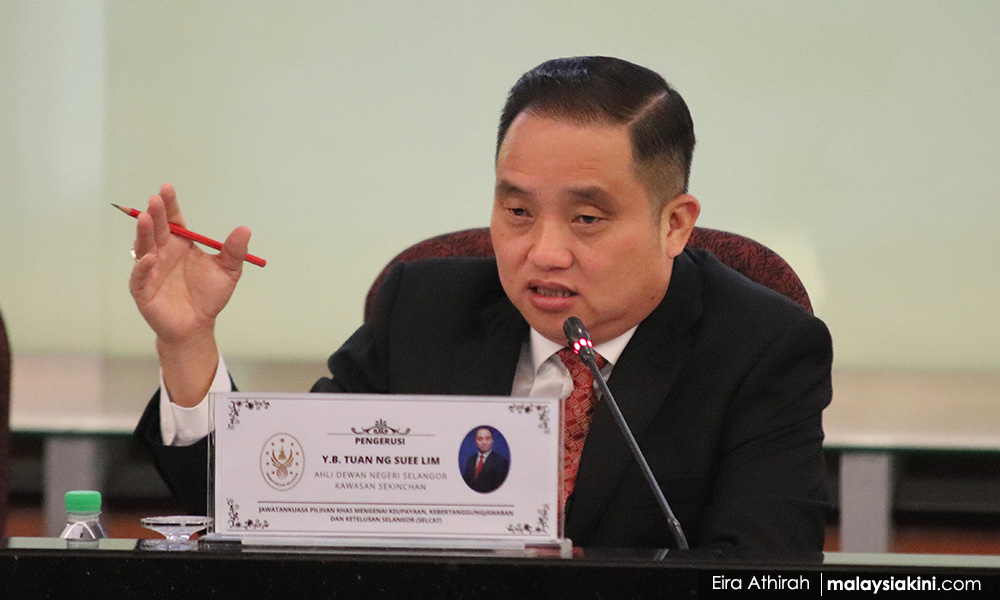
According to one Selangor PKR leader, what concerns Harapan the most was whether those who voted for BN in the 2022 parliamentary elections will back the new Harapan-BN pact, thus creating a lot of uncertainty.
For instance, the leader said in Sungai Kandis where PKR will be defending, BN secured 10,565 votes in GE15 while in Paya Jaras, BN obtained 23,290 votes. In both examples cited, none of the coalitions managed to cross the 50 percent mark.
“These voters have always voted for BN, now that they no longer have BN as an option, where will their votes go?” he said.
PN targeting BN swing voters
Some Umno leaders told Malaysiakini that they expect the “deep blue” - BN’s most diehard supporters - to remain firmly behind the Harapan-BN pact.
What worries them are the “light blue” - those who voted for BN in 2022 but are not as loyal. These are the voters who are being targeted by PN, according to Harapan-BN sources.
In recent months, PN leaders have relentlessly attacked Harapan, especially their component member DAP, and also criticised Umno - the main component of BN - for allegedly allowing their Malay credentials to erode.
This caused Umno to start its campaign on the defensive while party leaders went to great lengths to explain the virtues of the new Harapan-BN pact during the party’s annual general assembly.
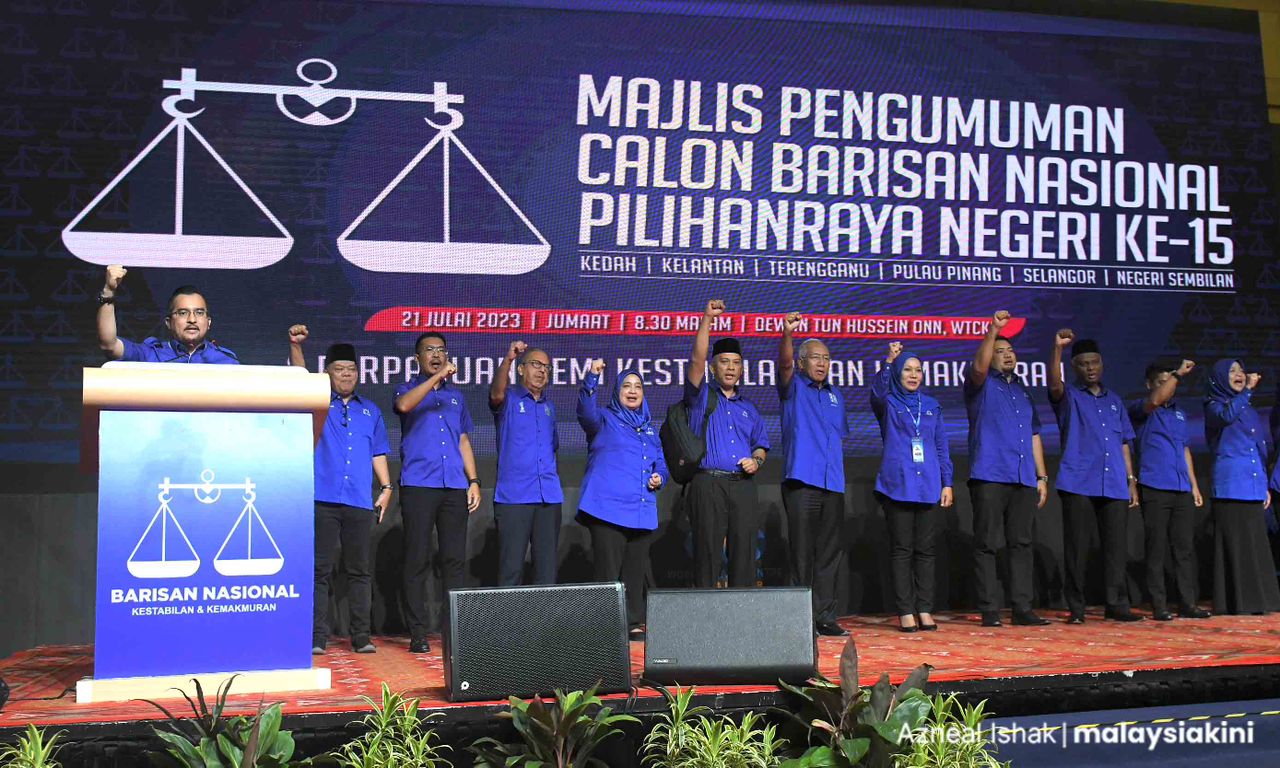
Preparing the BN faithful for the new alliance was seen as a crucial component of the campaign, as BN had fallen victim to internal sabotage before.
When former Selangor Umno president Noh Omar was dropped as a candidate in GE15, his supporters were absent from the campaign and even voted for opposing parties, eventually causing BN to lose its stronghold in Tanjong Karang.
Instances of internal sabotage were usually limited to disputes on the choice of election candidates but BN’s alliance with old enemy Harapan threatens to exacerbate the issue, especially when some BN component parties were not given seats to contest.
How many BN supporters will vote Harapan?
Assuming that the best-case scenario described by Ng, where half of the BN supporters vote for the Harapan-BN pact, and the other half does not turn out to vote, then Harapan will lose seven seats in Selangor that they won in the 2018 general election as depicted in the picture below.
These seats include Kuang (BN to field candidate), Morib (Harapan), Sungai Ramal (Harapan), Sungai Panjang (BN), Sabak (Harapan), Sungai Air Tawar (BN), and Sungai Burong (BN).
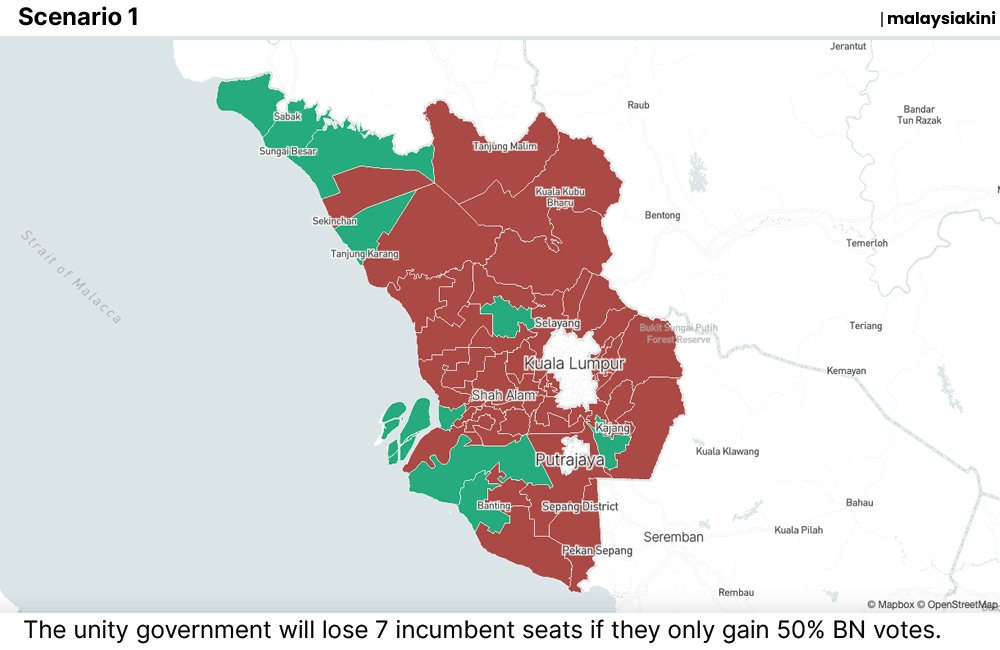
However, if 30 percent of BN supporters from the remaining half switch their support to PN, then Harapan will lose an additional three seats (see picture below), namely Batang Kali (BN), Hulu Bernam (Harapan), and Sementa (Harapan).
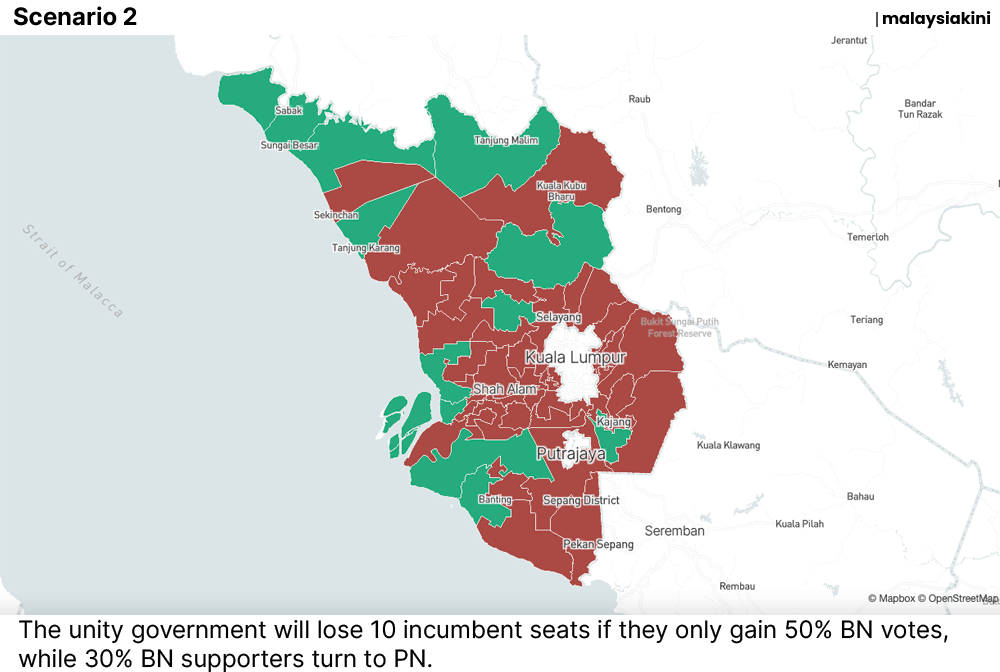
If the entire remaining half of BN supporters turned to support PN, then Harapan will lose Sungai Kandis (PKR) and Jeram (BN).
Even so, the Harapan-BN pact can still secure 42 state seats and maintain its two-thirds majority, while PN’s seats will increase from two to 14 (as shown in the third scenario below).
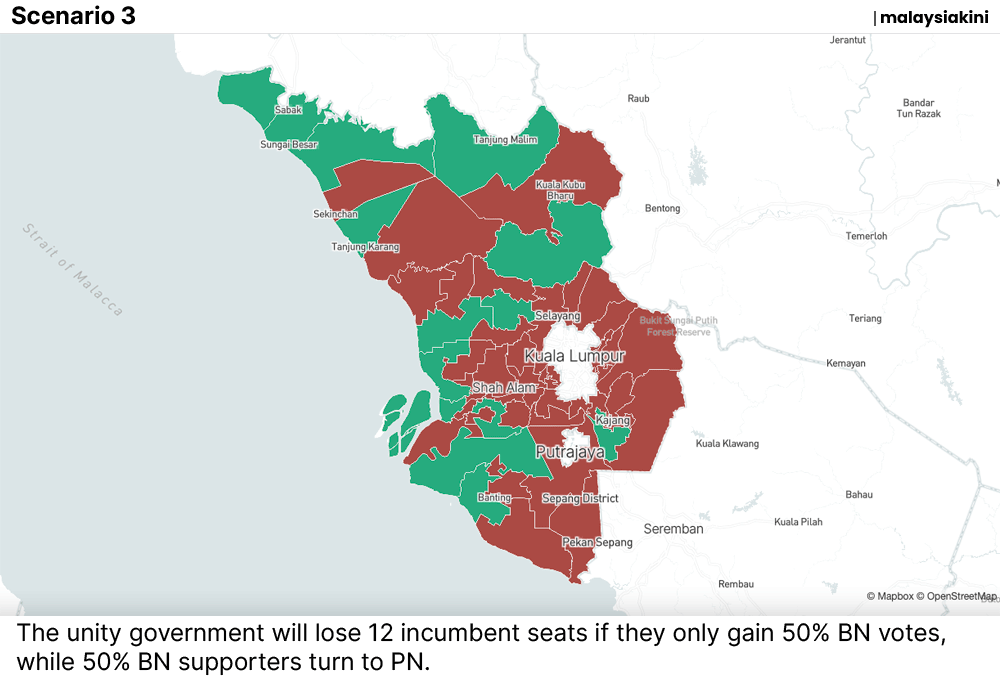
Voter turnout a key element
Another key variable for campaigners to consider is the voter turnout rate.
Based on past elections, voter turnout in state elections and by-elections is often lower compared to general elections.
For example, in the Johor state election held in March 2022, the number of votes received by Harapan was 47 percent lower than what they received in GE15, while the votes received by PN were 23 percent lower.
However, the coming elections involve six states, with some political observers describing it as a “mid-term election” while the opposition claims it is a referendum on Prime Minister Anwar Ibrahim.
Therefore, it is expected that the voter turnout will be higher than in the Johor state election.
If the supporter turnout for PN is 15 percent lower than in GE15 while the supporter turnout for Harapan is 30 percent lower, then the latter will face the worst-case scenario by obtaining only 36 seats and losing a two-thirds majority in the state legislative assembly.
Nevertheless, based on GE15 voters data, Harapan-BN is expected to still retain Selangor even in the worst-case scenario (see picture below).
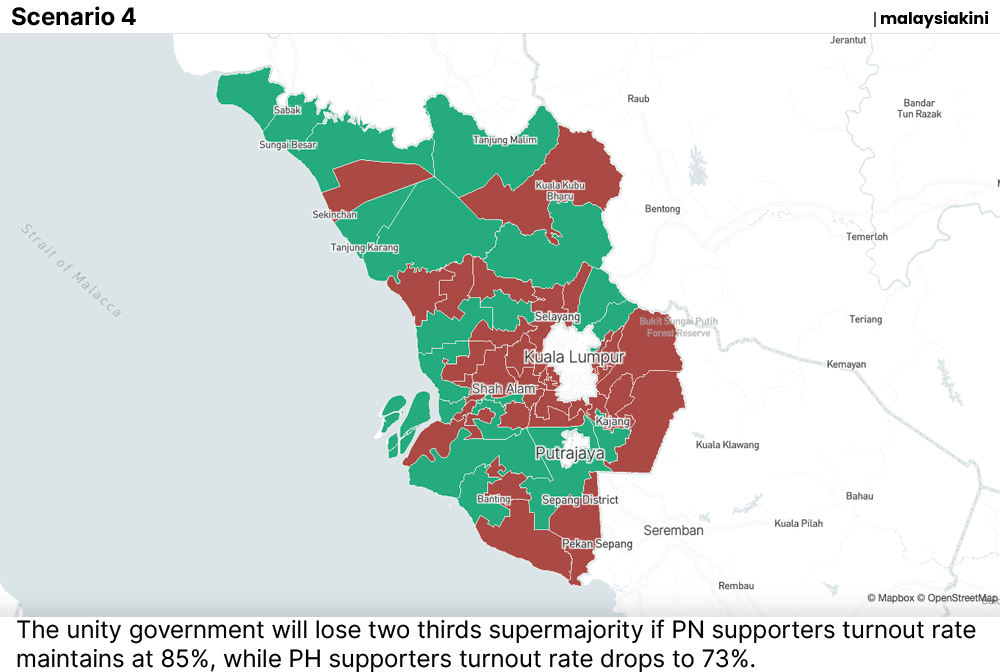
To avoid any unfavourable outcomes, Harapan not only needs to target BN swing voters but also ensure that its own supporters will come out to vote.
If the decrease in Harapan's supporter turnout rate is 11 percent more than the decrease in PN’s supporter turnout rate, then Harapan will lose its two-thirds majority.
Conversely, as long as the decrease rate of Harapan supporters’ turnout is less than the decrease in PN’s turnout, they can prevent the “Green Wave” from making a strong impact in Selangor.
The PKR leader described their relationship with Umno leaders as “having some obstacles” and, therefore, they need to “adjust quickly”.
“The focus now is on the Malay-majority constituencies, Harapan won those seats by just a few hundred or a few thousand votes.
“If coordination between Harapan and BN is poor, it may exacerbate certain issues, resulting in losing BN or Harapan votes, or some Harapan supporters abstaining altogether,” he said. - Mkini




No comments:
Post a Comment
Note: Only a member of this blog may post a comment.